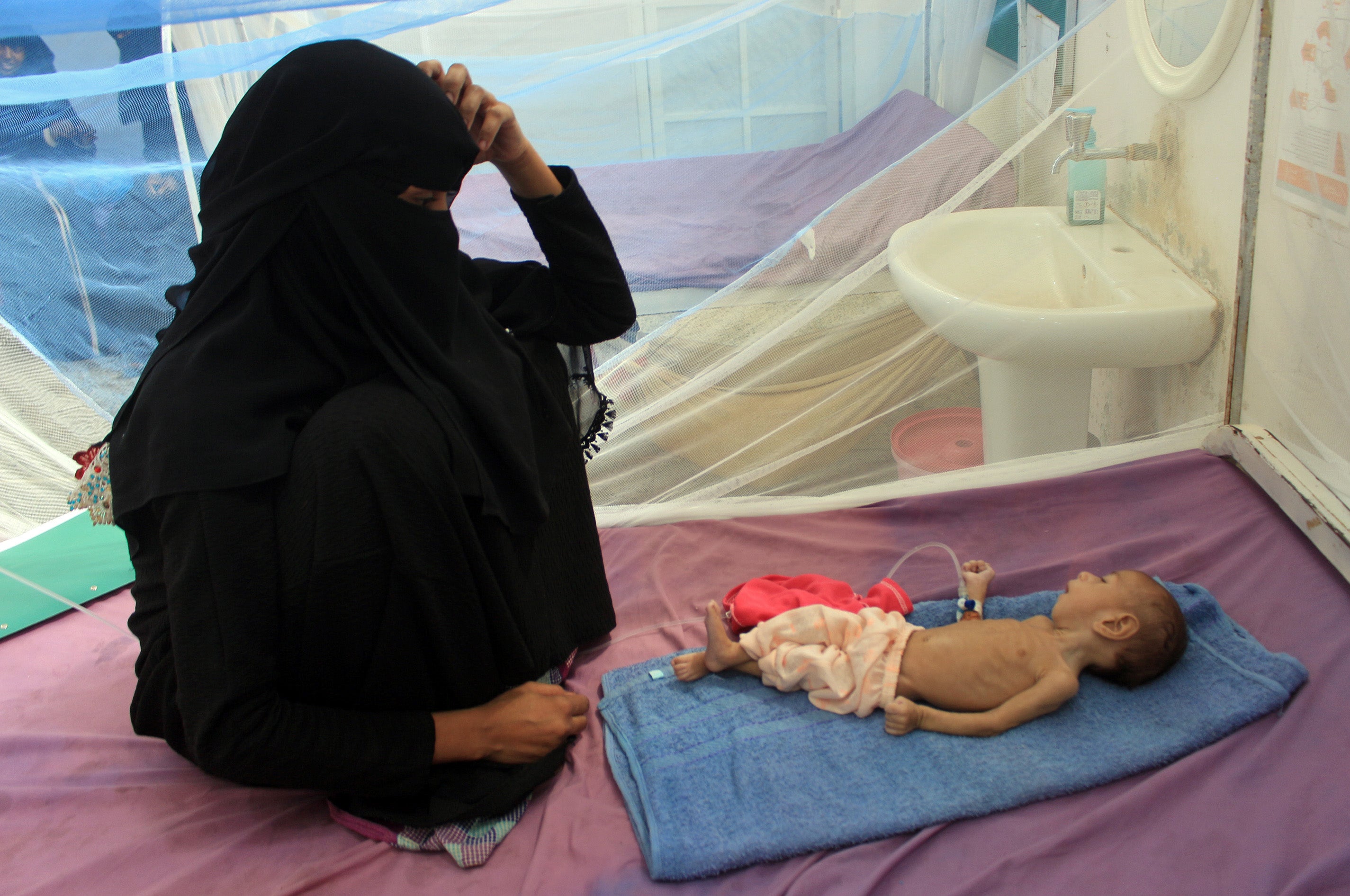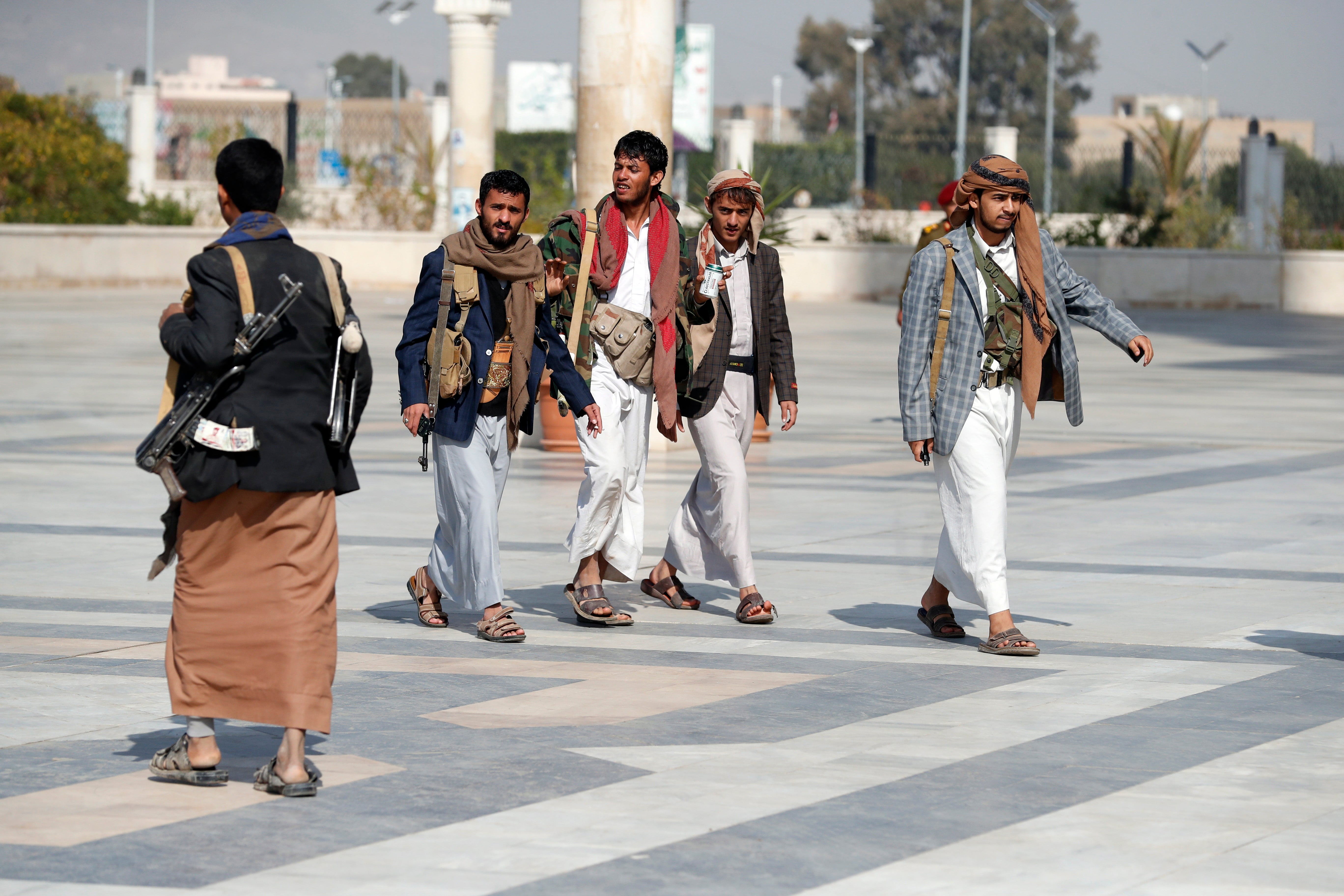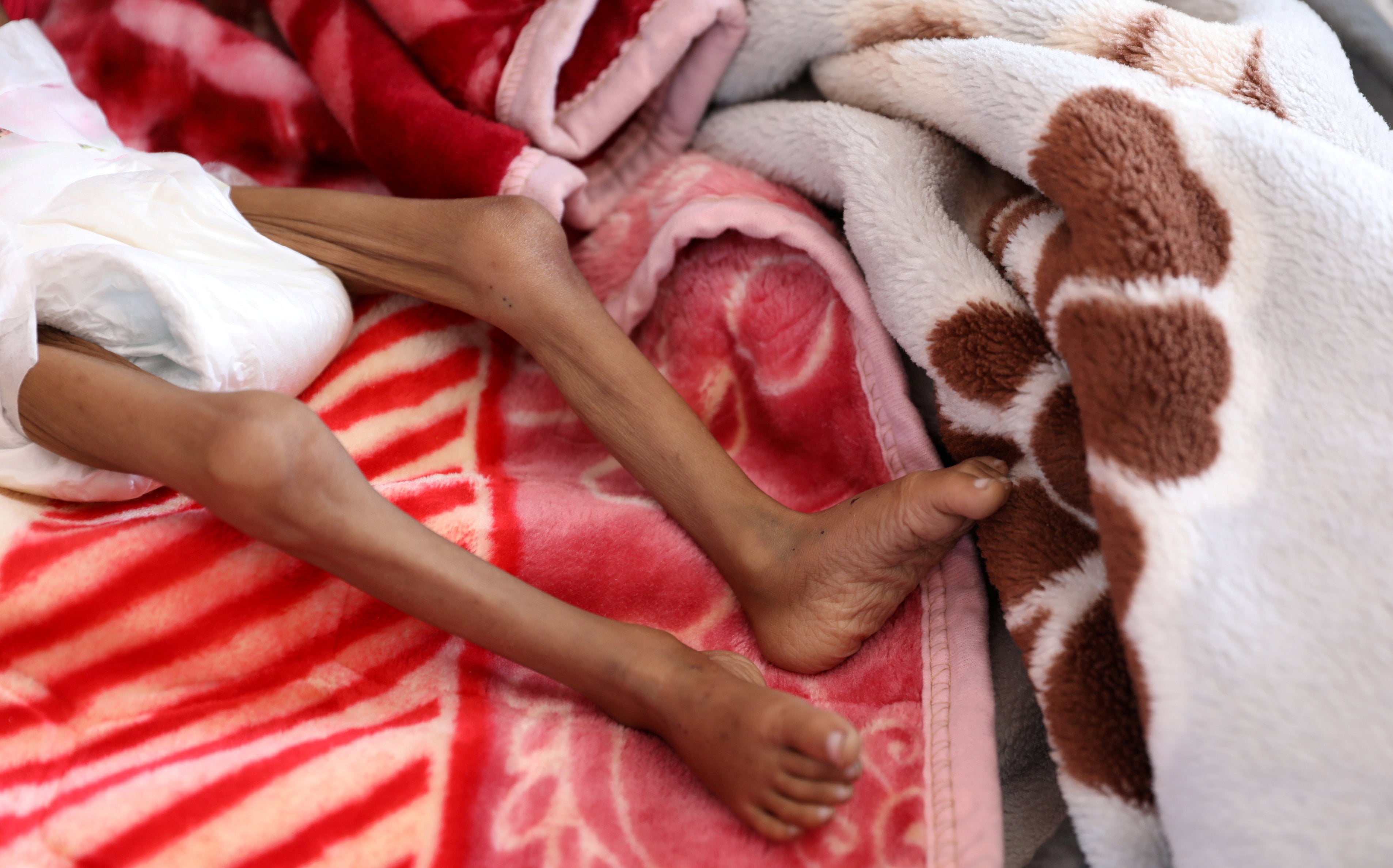400,000 children in Yemen at risk of dying from hunger, UN warns
Scale of potential disaster ‘unimaginable’, claim charity groups

Nearly half a million children under five could die from hunger in Yemen if they do not get urgent treatment, the United Nations has urgently warned, adding that 50 per cent of all under-fives in the country face acute malnutrition this year.
In a joint statement the UN’s child, food, health and agricultural agencies, said that in 2021 a staggering 2.3 million under-fives – half the number in the country – will go hungry or starve this year. That is a 16 per cent increase on levels in 2020.
Of that number, 400,000 are expected to suffer from severe acute malnutrition, which means they could perish if not treated urgently, a 22 per cent increase on the numbers in 2020.
A catastrophic combination of conflict, the coronavirus pandemic and climate change has ravaged war-torn Yemen, where 80 percent of the 30 million-strong population now rely on aid to survive.
Peace talks between the Gulf backed government and the Iran-supported Houthi rebels in the north have stalled, as the conflict enters its seventh year.
UN agencies have now warned that 2021 would have the highest level of severe acute malnutrition recorded since the start of the conflict, highlighting war-torn governorates like Hodeida, Aden, Hajjah and Taiz as being among the worst hit.
They said that mothers are also impacted: around 1.2 million pregnant or breastfeeding women in Yemen are expected to be acutely malnourished this year as well.
The UN agency chiefs called for an immediate end to the conflict, which was the main driving factor behind the devastation.
“The increasing number of children going hungry in Yemen should shock us all into action,” said Henrietta Fore, executive director of the UN’s child agency Unicef.
“More children will die with every day that passes without action,” she added.
The World Food Programme chief, David Beasley, added: “The crisis in Yemen is a toxic mix of conflict, economic collapse and a severe shortage of funding to provide the life-saving help that’s desperately needed.”

War erupted in Yemen with the Houthi takeover of the country in late 2014 eventually forcing the recognised government of Abdrabbuh Mansur Hadi to flee.
Yemen’s powerful gulf neighbours, including Saudi Arabia and the UAE, launched a bombing campaign in March 2015 to try to reinstall the government, but six years on there is little hope of an end to the conflict.
An estimated 100,000 people have died in the fighting, which has sparked the world’s worst humanitarian crisis in terms of numbers.
Despite the gravity of the crisis, the UN said that the humanitarian response to Yemen remains “critically unfunded”. Last year they were only able to secure just over 50 per cent of the $3.4bn funds needed to run their programmes, some of which were shut down due financial shortfalls.
According to the UN, Yemen is “one of the most dangerous places in the world for children to grow up”.
The country’s devastated health care system is struggling to deal with malnutrition as well as multiple epidemics including cholera, on top of the coronavirus pandemic.
Save the Children, which is supporting hungry children in Yemen, urged the UK to increase its amount of life saving aid with Denisa Delic, the group’s head of UK Influencing saying the “scale of the need is unimaginable”.

Save the Children’s director for Yemen, Xavier Joubert, welcomed the US efforts to proactively resolve the conflict including suspending arm sales to Gulf countries involved but called on other countries to follow suit.
One desperate mother in Taiz told the global child’s rights group that the main reason her child had severe acute malnutrition was because of soaring food prices in the conflict.
“I used to buy the milk bottle for her for 3000 YER ($12) now I buy it for 4000 (YER) $16). We are suffering because we cannot afford to buy her milk and other goods,” the woman, called Safiya, said.
“All children are sick. I have really lost hope. Sometimes my children sleep without dinner or water.”
Join our commenting forum
Join thought-provoking conversations, follow other Independent readers and see their replies
Comments


Bookmark popover
Removed from bookmarks